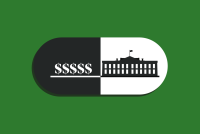Latest KFF Health News Stories
With Overdose Deaths Surging, Advocates on the Ground Push for Over-the-Counter Naloxone
Harm-reduction groups say that requiring a doctor to sign off on their orders of the overdose reversal drug is one of the biggest barriers they face in obtaining the lifesaving medication.
Texas Toughens Ban on Medication-by-Mail Abortions With Jail Time and Hefty Fine
Last week, on the same day the Supreme Court heard a case that could overturn Roe v. Wade, the landmark ruling on abortion rights, Texas enacted a law that creates criminal penalties for anyone who prescribes medication abortions via telehealth or mail.
Journalists Explore Health Care Disparities and Policy Pitfalls
KHN and California Healthline staff made the rounds on national and local media this week to discuss their stories. Here’s a collection of their appearances.
Success of Covid Antiviral Pills Hinges on Access to Speedy and Accurate Tests
The promising antiviral drugs to treat covid can halt hospitalizations and deaths, but only if they’re given to patients within three to five days of their first symptoms, a narrow window many people won’t meet. Here’s why.
Public Opinion Is Unified on Lowering Drug Prices. Why Are Leaders Settling for Less?
Politicians and many health experts have done their best to see the glass half-full in the plan put forward by congressional Democrats and the president. But it’s “a far cry” from what other nations do to rein in drug prices, and polls show most voters demand more protection.
Cómo las comunidades rurales están perdiendo sus farmacias
Las farmacias de las esquinas, que alguna vez estuvieron tanto en las grandes ciudades como en los pueblos rurales, están desapareciendo de muchas áreas del país, dejando a unos 41 millones de estadounidenses en lo que se conoce como “desiertos de farmacias”, sin fácil acceso a las farmacias.
How Rural Communities Are Losing Their Pharmacies
More than 1,000 independent rural pharmacies have closed since 2003, leaving 630 communities with no retail drugstore. As 41 million people stuck in pharmacy deserts make do, the remaining drugstores struggle to survive.
As Overdose Deaths Soar, DEA-Wary Pharmacies Shy From Dispensing Addiction Medication
A West Virginia pharmacy cleared a Drug Enforcement Administration investigation. But it shut down anyway, highlighting how the agency’s policies reduce the availability of buprenorphine, an important tool for recovery from opioid addiction.
La nueva legislación bajaría dramáticamente el precio de la insulina, y lograría que el impacto de los precios astronómicos no recaigan en el consumidor.
Despite Restraints, Democrats’ Drug Pricing Plan Could Still Aid Consumers
A last-minute agreement among lawmakers restored a provision seeking to hold down rising costs of prescription medicines. Although details on which drugs will be targeted remain sketchy, the legislation would help patients buying insulin and cap Medicare beneficiaries’ out-of-pocket drug costs at $2,000 a year.
KHN’s ‘What the Health?’: Compromise Is Coming — Maybe
Democratic negotiators on Capitol Hill appear to be nearing a compromise on President Joe Biden’s social spending agenda, spurred partly by Democratic losses on Election Day in Virginia. Meanwhile, the Supreme Court hints it might allow abortion providers to sue Texas over its restrictive new ban. But the relief, if it comes, could be short-lived if the court uses a second case, challenging a law in Mississippi, to weaken or overturn Roe v. Wade. Alice Miranda Ollstein of Politico, Margot Sanger-Katz of The New York Times and Mary Ellen McIntire of CQ Roll Call join KHN’s Julie Rovner to discuss these issues and more. Also this week, Rovner interviews KHN’s Rae Ellen Bichell, who reported and wrote the latest KHN-NPR “Bill of the Month” feature about an emergency bill for a nonemergency birth.
KHN’s ‘What the Health?’: Biden Social-Spending ‘Framework’ Pulls Back on Key Health Pledges
President Joe Biden unveiled a compromise “Build Back Better” framework shortly before taking off for key meetings in Europe, but it’s unclear whether the framework can win the votes of all Democrats in the House and Senate, and it leaves out some of the party’s health priorities, notably significant provisions to lower prescription drug prices. Meanwhile, younger children may soon be eligible for covid vaccines. Joanne Kenen of Politico and Johns Hopkins, Sarah Karlin-Smith of the Pink Sheet and Rachana Pradhan of KHN join KHN’s Julie Rovner to discuss these issues and more.
The Public Backs Medicare Rx Price Negotiation Even After Hearing Both Sides’ Views
But Americans generally have little confidence that the White House or Congress will recommend the right thing, a new poll shows.
What the Stalemate on Capitol Hill Means for Your Drug Prices
Despite big 2020 campaign promises to deliver lower costs on prescription drugs, Democrats have failed to unite around a legislative plan.
From the FDA’s Empty Seat to Chock-Full ICUs, Journalists Recap the Week’s Stories
KHN and California Healthline staff made the rounds on national and local media this week to discuss their stories. Here’s a collection of their appearances.
KHN’s ‘What the Health?’: The Autumn of Democrats’ Discontent
Congress is back in session with a short time to finish a long to-do list, including keeping the government operating and paying its bills. Hanging in the balance is President Joe Biden’s entire domestic agenda, including major changes proposed for Medicare, Medicaid and the Affordable Care Act. Meanwhile, the new Texas abortion law that bans the procedure early in pregnancy is prompting action in Washington. Joanne Kenen of Politico, Mary Ellen McIntire of CQ Roll Call and Sarah Karlin-Smith of the Pink Sheet join KHN’s Julie Rovner to discuss these issues and more. Also, Rovner interviews former FDA Commissioner Scott Gottlieb about his new book on the covid-19 pandemic.
Biosimilar Drugs Are Cheaper Than Biologics. Are They Similar Enough to Switch?
Biologic drugs, made from living organisms, and the cheaper biosimilar drugs that mimic them are more complex than chemical drugs and their generic counterparts. The Food and Drug Administration says biosimilars are as safe and effective as the biologics, and doctors agree — but they are cautious about changing the treatment regimen of patients doing well.
KHN’s ‘What the Health?’: Much Ado About Drug Prices
Democrats have hit a snag in their effort to compile a $3.5 trillion social-spending bill this fall — moderates are resisting support for Medicare drug price negotiation provisions that would pay for many of the measure’s health benefit improvements. Meanwhile, the new abortion restrictions in Texas have moved the divisive issue back to the political front burner. Alice Miranda Ollstein of Politico, Rachel Cohrs of Stat and Shefali Luthra of The 19th join KHN’s Julie Rovner to discuss these issues and more. Also this week, Rovner interview’s KHN’s Phil Galewitz about the latest KHN-NPR “Bill of the Month” installment, about two similar jaw surgeries with very different price tags.
KHN’s ‘What the Health?’: Booster Time
As the delta variant continues to spread around the U.S., the Biden administration is taking steps to authorize covid vaccine boosters, require nursing home workers to be vaccinated and protect school officials who want to require masks despite state laws banning those mandates. Meanwhile, the U.S. House is returning from its summer break early to start work on its giant budget bill, which includes a long list of health policy changes. Alice Miranda Ollstein of Politico, Margot Sanger-Katz of The New York Times and Kimberly Leonard of Business Insider join KHN’s Julie Rovner to discuss these issues and more.
KHN’s ‘What the Health?’: The Senate Acts
The U.S. Senate worked well into its scheduled August recess to pass a bipartisan infrastructure bill and a budget blueprint that outlines a much larger bill — covering key health priorities — to be written this fall. Meanwhile, the latest surge of covid is making both employers and schools rethink their opening plans. Joanne Kenen of Politico, Mary Ellen McIntire of CQ Roll Call and Yasmeen Abutaleb of The Washington Post join KHN’s Julie Rovner to discuss these issues and more. Also, for “extra credit,” the panelists suggest their favorite health policy stories of the week they think you should read, too.


















